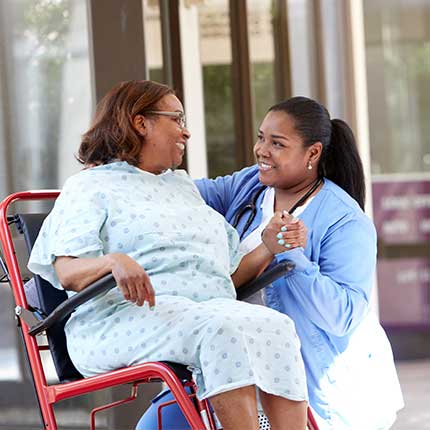Healthy Living: Cardiovascular
What to Do When Your Heart Skips a Beat
When your heart unexpectedly starts to race or flutter and feel like it is skipping a beat, they are called heart palpitations. These sensations can be felt in the throat, neck or chest and can last for a few seconds or several minutes. People experience heart palpitations in different ways. It can feel like the heart is throbbing, flip-flopping or murmuring. For most people, palpitations occur occasionally, but others may experience dozens of heart flutters a day.
Although they are very common and may usually go away without treatment, they can be frightening and can be so strong that they feel like a heart attack. In other cases, heart palpitations may be a sign of more serious heart problems.
Causes of Heart Palpitations
Palpitations can be linked with strong emotions, not getting enough sleep, physical activity, too much caffeine, excessive alcohol intake, nicotine, illegal drugs, certain events or activities. A number of medicines can trigger heart palpitations as well, such as:
- Asthma inhalers
- Medications for high blood pressure
- Antihistamines
- Antibiotics
- Antidepressants
- Antifungal medicines
Other more serious causes include premature contractions of the atria, which is the upper chambers of the heart that act as holding chambers for blood returning from the veins; early contractions of the ventricles, muscular chambers that pump blood out of the heart and into the circulatory system; and problems with the heart’s natural pacemaker or sinus node and valve problems such as mitral valve prolapse. When you experience heart palpitations only occasionally, it is unlikely that the underlying cause is life-threatening, however, it is advisable to consult a doctor when palpitations:
- Follow a history of heart problems
- Last for long periods
- Do not improve over time
- Get worse
Diagnosis
Aside from asking about your symptoms and medical history, your doctor may also recommend blood tests and an electrocardiogram to check your heartbeat. Further tests may also be required if there are suspicions of a heart problem or an arrhythmia such as:
- Holter monitoring – a machine that records the heart’s rhythm for 24-48 hours.
- Treadmill testing – a person will usually walk and run on a treadmill or ride a stationary bicycle while the heart rate and rhythm are monitored to trigger, and at the same time, diagnose a palpitation.
- Echocardiogram – an ultrasound of the heart to create an image of the heart’s size, structure and motion.
Treatment
Treatment of heart palpitations depend on its causes, but if you suffer from unexplained palpitations, here are some recommendations to avoid triggering heart palpitations:
- Do not smoke.
- Minimize alcohol intake or stop drinking altogether.
- Eat healthy and on a schedule.
- Drink plenty of fluids.
- Get enough sleep.
- If a medicine is causing palpitations, ask your doctor for other alternatives.
- Practice deep breathing or yoga to ease the stress and anxiety that can come with palpitations.
- Do the Valsava maneuver. Pinch your nose closed with the fingers of one hand. Close your mouth then try to breathe out forcibly through your nose.
- Splash cold water on your face or immerse your face in a sink or large bowl filled with cold water.
When your heart palpitations persist and become bothersome, your doctor may recommend these options to slow down your heart rate and control your heartbeat:
- Beta blockers (also known as Beta-Adrenergic Blocking Agents)
- Cardiac ablation – a minor surgery that uses a series of catheters to correct the heart’s irregular beat. This procedure typically takes 3-6 hours and may be done under general anesthesia.
If you have palpitations and feel dizzy or confused, have severe shortness of breath or have pain or tightness in the chest, seek medical attention immediately or call 911.
Sources:
National Heart, Lung, and Blood Institute
Medical News Today
Harvard Health Publishing


